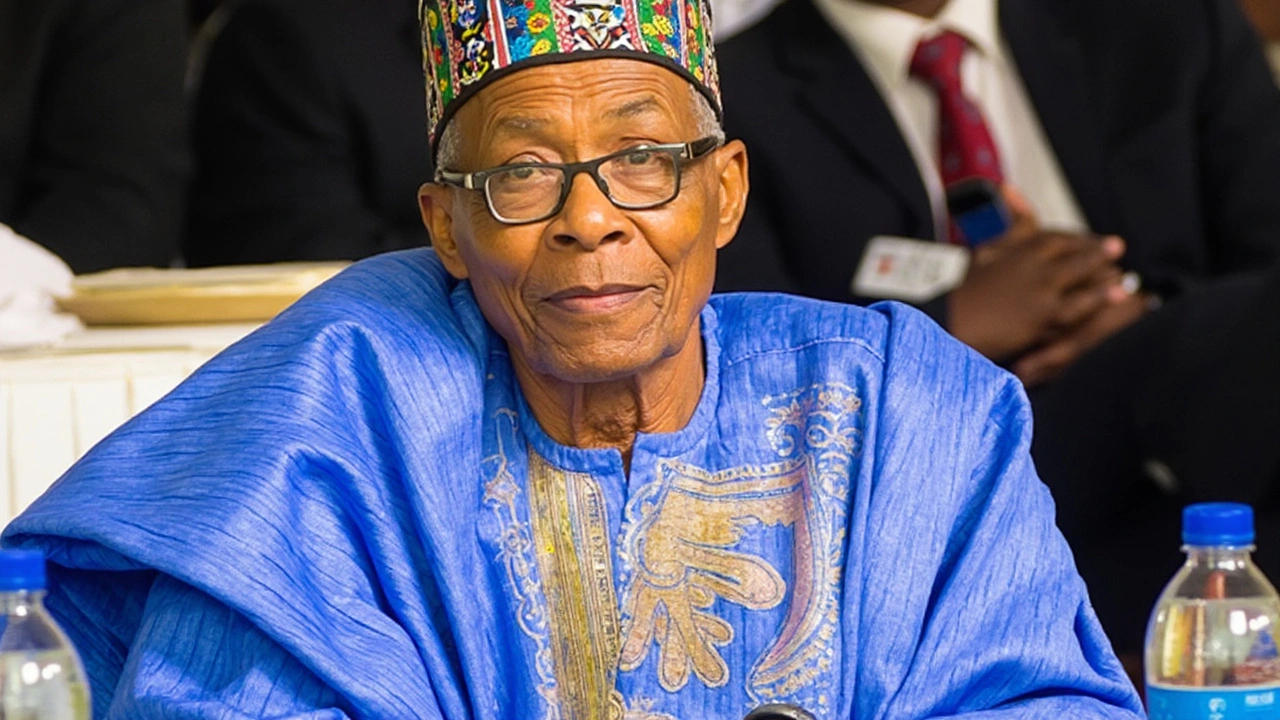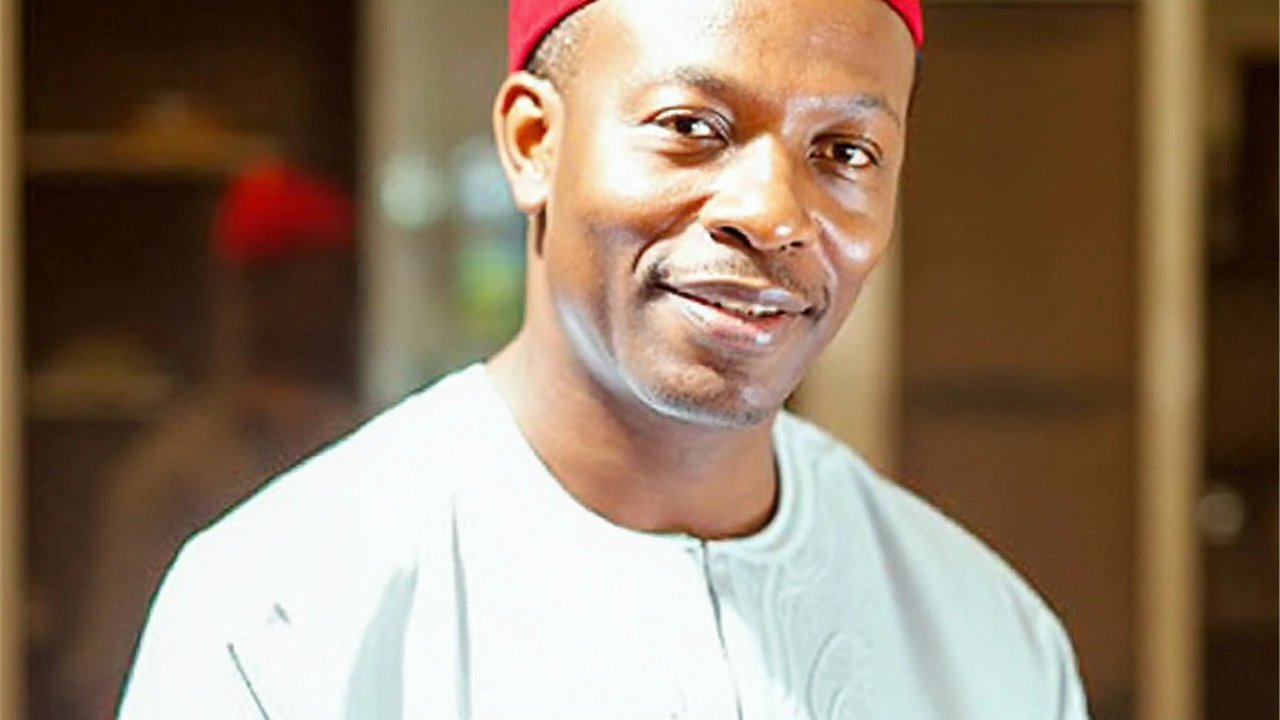The Controversy Behind June 12's Annulment
Former Nigerian Military President Ibrahim Babangida has stirred the political waters with his recent admission in his memoir, A Journey in Service, recognizing the importance of the June 12, 1993 election where Chief MKO Abiola claimed victory. However, Babangida attributes the subsequent annulment to manipulations by General Sani Abacha and his supporters. This assertion has sparked widespread disbelief and skepticism, as many Nigerians find it hard to swallow, given Babangida's previously tight control over his military administration.
Nigerians are raising eyebrows at Babangida's claim that he was unaware of the annulment plans, especially since he was the Commander-in-Chief who abolished the key position of Chief of Staff after toppling Buhari's regime. His position and authority at the time seemingly contradict the idea that Abacha could have orchestrated such a significant event without Babangida's knowledge or endorsement.

Backlash and National Outcry
The delayed acknowledgment, nearly three decades after the occurrences, has only added fuel to the fire of public criticism. One glaring omission is Babangida’s silence on other unresolved issues from his tenure, such as the mysterious assassination of Dele Giwa, a move that continues to perplex many observers of Nigerian history.
Student groups, particularly the National Association of Ogun State Students (NAOSS), vocally rejected Babangida's narrative, accusing him of cowardice and attempting to rewrite history. For many, the memoir is seen as a deflection, with Babangida trying to wash his hands clean of responsibility. This disdain echoes throughout the political landscape, with President Bola Tinubu recounting experiences where Babangida was hesitant to pass power to duly elected civilians, reinforcing suspicions about his true intentions.
Senator Orji Kalu has also joined the chorus of critique, challenging Babangida to publicly disclose the names of those allegedly responsible for the annulment, demanding transparency and accountability. Notably, Babangida's claim that his authority was superseded by subordinate actions, like Admiral Augustus Aikhomu’s press secretary announcing the annulment without presidential approval, is widely dismissed as improbable.
The underlying issue here transcends individual grievances—it cuts to the heart of a national legacy. Babangida’s belated recognition of Abiola’s win, without addressing the hard questions, leaves Nigerians staring into the past, grappling with unresolved injustices attached to what is often deemed Nigeria’s most credible election. Each revelation—or lack thereof—prolongs a narrative of doubt and discord, leaving many to wonder if the full story will ever truly come to light.

Naveen Kumar Lokanatha
February 25, 2025 AT 17:13Babangida's sudden recollection indeed raises eyebrows across the nation
Alastair Moreton
February 25, 2025 AT 20:00lol babangida finally got the popcorn ready to throw blame on abacha like it’s a cheap plot twist, and we’re all supposed to clap?
Surya Shrestha
February 25, 2025 AT 22:46One must, with a modicum of scholarly rigor, interrogate the epistemological scaffolding that undergirds Babangida’s late‑stage revisionism; the chronological incongruities, the paucity of corroborative documentation, and the conspicuous absence of contemporaneous testimony collectively foment a discourse that is, at best, speculative; consequently, any attempt to exonerate oneself post‑factum borders on historiographical revisionism of a most dubious ilk.
Rahul kumar
February 26, 2025 AT 01:33Hey folks, just a quick refresher – June 12, 1993 was seen as the most credible election in Nigeria’s history, MKO Abiola actually won a massive margin. Babangida’s regime ripped it out of the box, then tried to hide it for decades. The memoir finally admits the win but tries to shift blame. Remember, the military chain‑of‑command means the head of state can’t just be out of the loop on such a huge move.
mary oconnell
February 26, 2025 AT 04:20Ah, the sweet aroma of selective amnesia wafts through Babangida’s pages, a veritable palimpsest where the ink of accountability is scrubbed away, leaving only the glitter of rhetorical flourish. One can almost hear the echo of “epistemic dissonance” reverberating through the corridors of power, while the nation watches the theatrical re‑writing of its own democratic heritage.
Michael Laffitte
February 26, 2025 AT 07:06Man, this feels like a drama series that never ends. First they crown a winner, then they pull the rug, and now the same guy tries to say it wasn’t his fault. It’s exhausting, but also oddly fascinating to see history replay itself in real time.
sahil jain
February 26, 2025 AT 09:53Honestly, it’s wild how Babangida just pops up now to say he didn’t know-like, come on! 🙄 The truth is out there, and we’re not buying the late‑stage blame game.
Bruce Moncrieff
February 26, 2025 AT 12:40Look, the real question is why it took almost three decades to even acknowledge the win. If you’re trying to rewrite the narrative, at least be consistent and give us the names of those who pulled the strings, not just vague “subordinates”.
Dee Boyd
February 26, 2025 AT 15:26It is morally reprehensible to engage in such historical obfuscation; one must demand integrity, not a post‑hoc exoneration. The collective memory of a nation cannot be sanitized by the whims of a former autocrat.
Carol Wild
February 26, 2025 AT 18:13The narrative presented by Babangida reads like a carefully curated script for a political theatre, a script that conveniently ignores the myriad documentary evidences that have been painstakingly compiled by scholars over the past decades. In the first act, we see the proclamation of victory by Chief Abiola, an event that was widely covered by both local and international media, confirming the legitimacy of the election outcome. The second act introduces a shadowy figure-General Abacha-who, according to Babangida, masterminded the annulment, yet no verifiable chain of command documents substantiate this claim. Thirdly, the memoir sidesteps the role of the press secretary, Admiral Aikhomu’s office, whose public announcements were, in reality, directed by the highest echelons of military leadership. Fourth, we must consider the patterns of silence that Babangida has maintained regarding other unresolved incidents such as the Dele Giwa assassination, suggesting a broader strategy of selective amnesia. Fifth, the memoir fails to address the testimonies of senior officers who have publicly refuted Babangida’s version of events. Sixth, the political climate of the early 1990s, marked by intense pressure from civil society, would have rendered any unilateral annulment without senior approval implausible. Seventh, the consistency of the alleged “subordinate action” narrative is contradicted by the documented meetings between Babangida and his top generals regarding election outcomes. Eighth, the lack of any declassified internal memos or orders from the period further erodes the credibility of Babangida’s defense. Ninth, the memoir’s timing-decades after the fact-raises questions about the motive behind this sudden confession. Tenth, the broader implications for Nigeria’s democratic evolution are undermined when a former ruler attempts to rewrite history for personal exoneration. Eleventh, scholars have long argued that the annulment was a calculated move to preserve military dominance, an argument that Babangida’s memoir does not refute convincingly. Twelfth, the international community’s reaction at the time, including sanctions and diplomatic protests, aligns with a narrative of top‑level complicity, not isolated rogue action. Thirteenth, the silence of key military officials in the memoir further suggests an orchestrated omission. Fourteenth, the memoir’s lack of concrete evidence-names, dates, documents-renders it more of a personal excuse than a factual account. Finally, the enduring anger of Nigerians, echoed in student protests and political discourse, serves as a living testament that Babangida’s late‑stage narrative does not align with the lived experience of the nation.
Rahul Sharma
February 26, 2025 AT 21:00In analyzing the memoir, one must emphasize the necessity of primary source corroboration; without archival records, Babangida’s claims remain speculative; thus, an assertive call for the release of official transcripts is warranted; the public deserves transparency.
Emily Kadanec
February 26, 2025 AT 23:46i think babangida literally missed the point, its not about who did what but about the whole system lol.
william wijaya
February 27, 2025 AT 02:33It’s heartbreaking to see a nation’s hope get hijacked, and the emotional fallout still lingers in the collective psyche; the trauma of that day still echoes in families across Nigeria.
Lemuel Belleza
February 27, 2025 AT 05:20another memoir, another excuse. nothing new.
faye ambit
February 27, 2025 AT 08:06One could argue that revisiting history with a fresh pen is admirable; however, when the ink is used to smudge, it becomes an exercise in futility, a rhetorical dance that sidesteps accountability.
Subhash Choudhary
February 27, 2025 AT 10:53Seriously, babangida’s claim that he didn’t know about the annulment sounds like a classic “I wasn’t there” excuse. It’s hard to trust a story that pops up after so long.